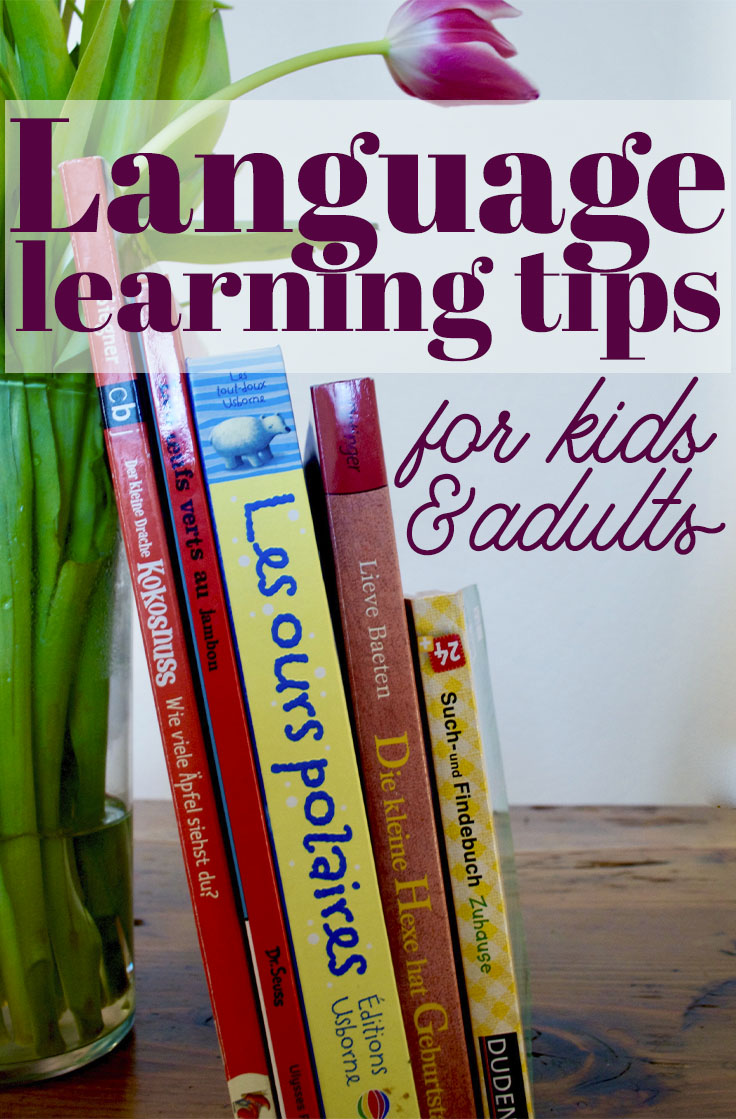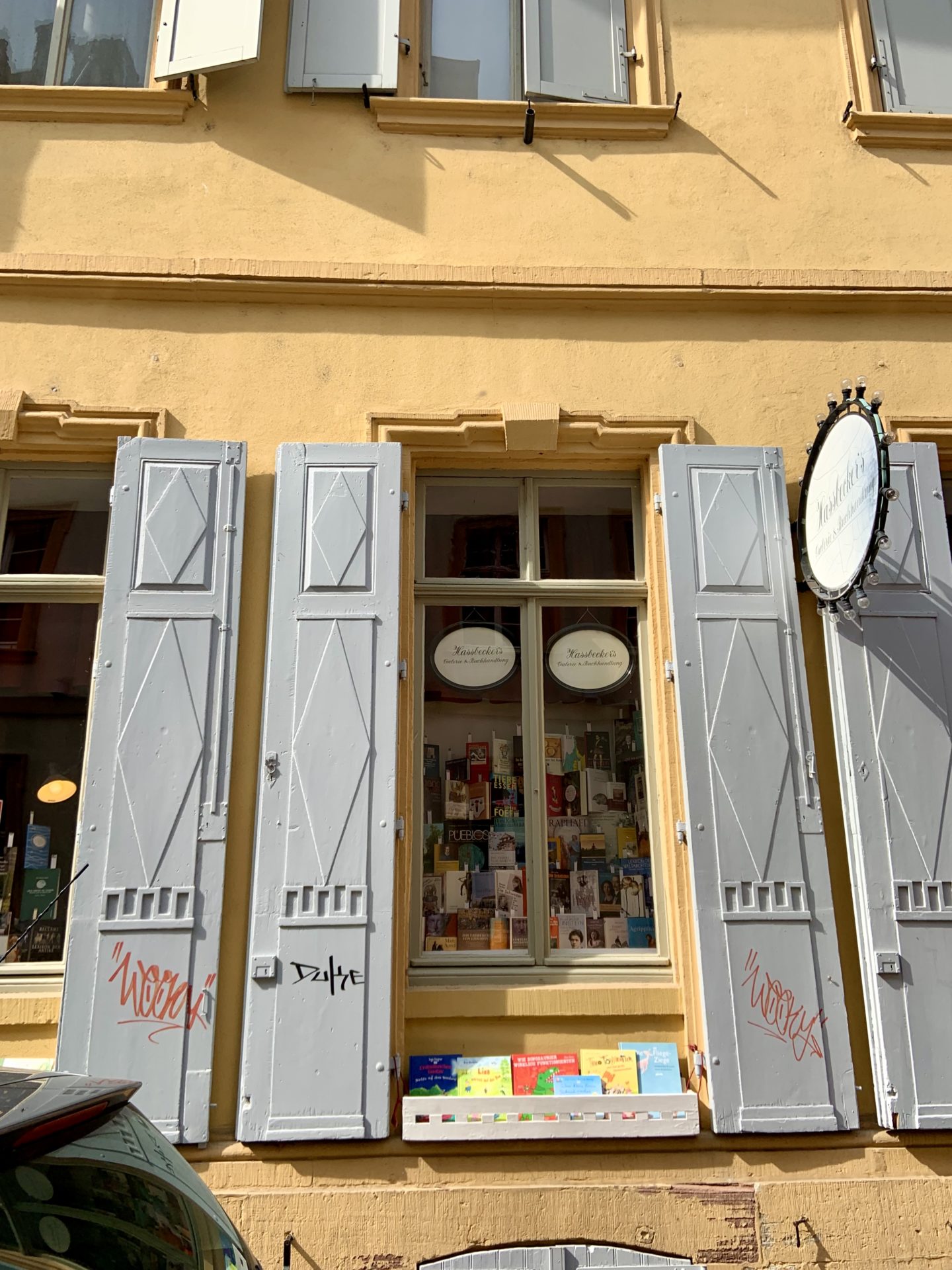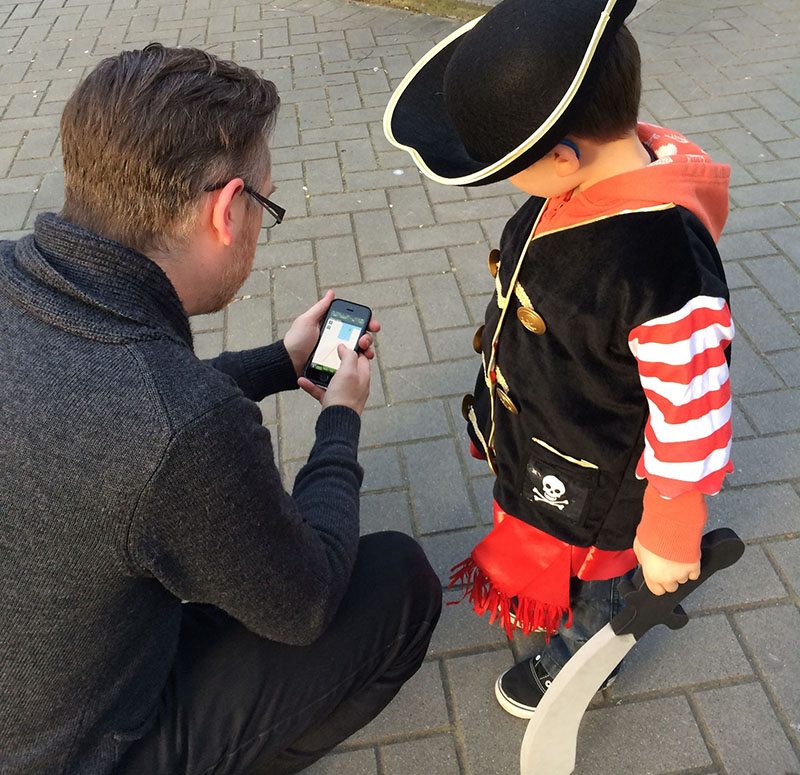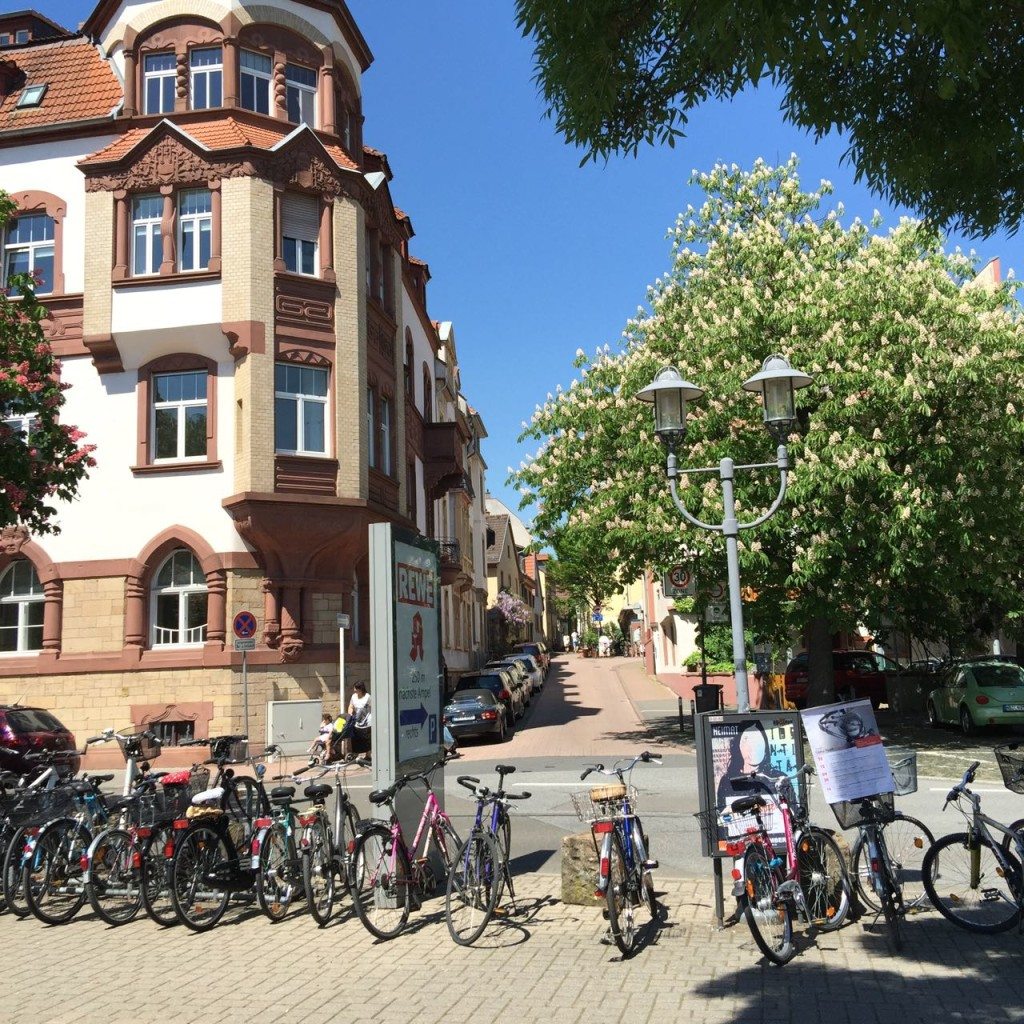We originally only spoke English in our family, along with some French because we’re Canadian. Several years ago, we moved to southern Germany near the French border, and all of a sudden, languages became very, very important. I’ve since learned a lot about what helps with language learning and I’ve outlined what’s worked for both my husband and I as adults, and our son, below.
When I first wrote this post, we were just about to move to Germany. Now that we’ve lived here for nearly five years, I wanted to update you on what has worked and what hasn’t for seriously learning another language.
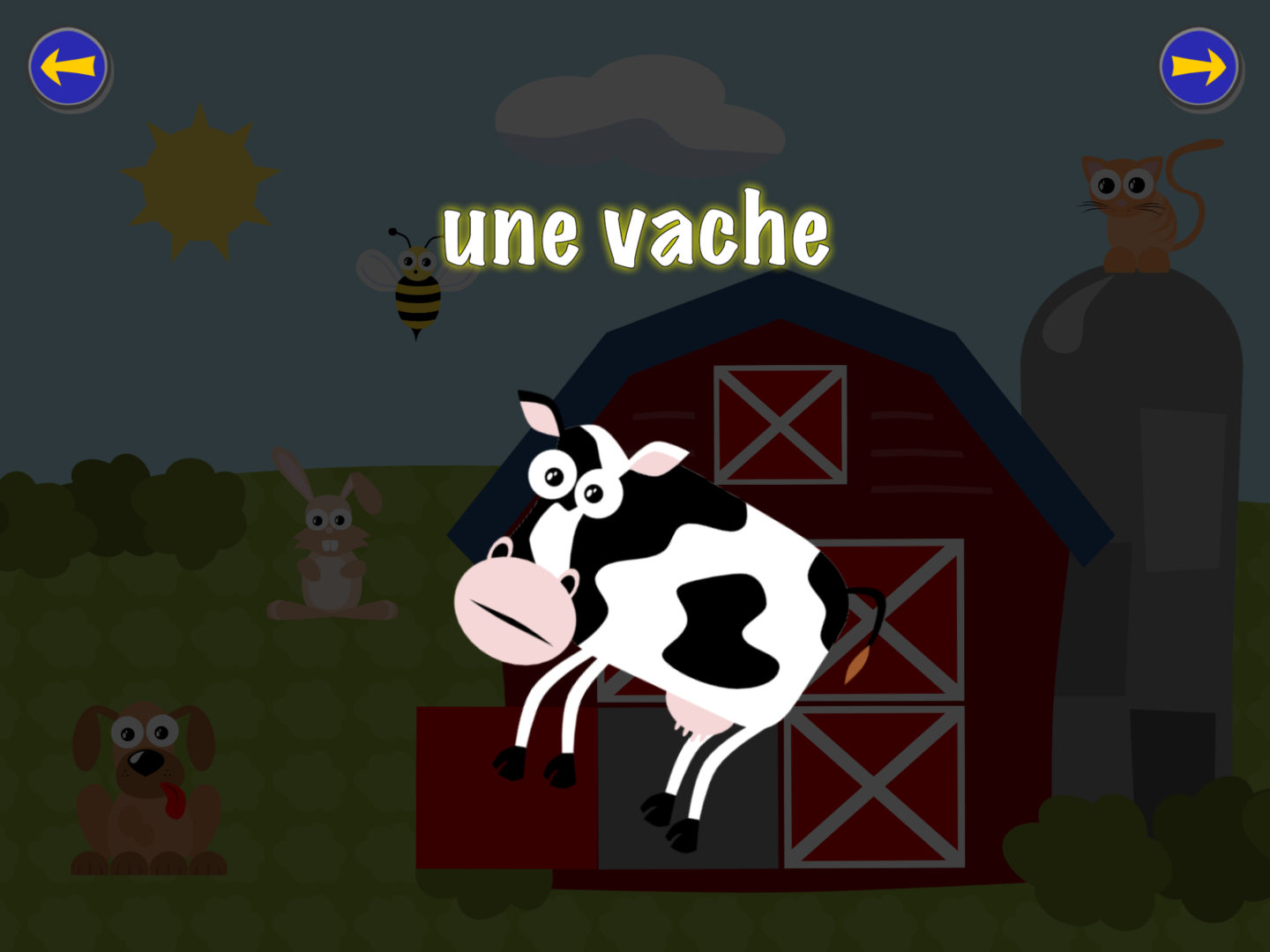
Language learning for kids
First of all, let’s talk about kids learning another language. Before we moved to Germany, our nearly seven year old had been in French immersion, so his reading and writing education had been entirely in French so far. He spoke quite well, and understood loads. We threw him in the deep end when we arrived in Germany and he started at bilingual school – though it turned out bilingual there meant more like 70% German. His first teacher did not speak much English. He’s now five years in, and is around a level C1/C2. The language he speaks with his friends is German, and occasionally when he plays online with English speaking friends, he does an excellent UN translator thing of translating back and forth while playing video games. I won’t lie, it was rocky there for awhile, and the nitty-gritty elements of German grammar are still a bit of a battle at school. Next year, he begins taking French in school as well.
Strategies that helped my son learn
None of these little tools will replace speaking the language regularly or school in that language, but they all helped a bit.
We are huge fans of the app for young kids, Gus on the Go. It’s available in 30 languages, and they do a great job of helping kids learn early vocabulary. There’s a next level app called Gus on the Go Stories now for French, Spanish, Greek, and Hebrew. These apps were developed by a lovely multilingual family, and we’ve been using and recommending them for years. On their website, they have lots of free language printables too.
Other strategies for helping our son with learning German included:
- Putting subtitles on any TV shows or films he watched, and letting him watch a bit more if it was in German
- Finding comics he liked in German
- Listening to audiobooks in German, often of stories he already knew so he had some context
- Suggesting he ‘help’ us with our German reading (which did actually help, by the way)
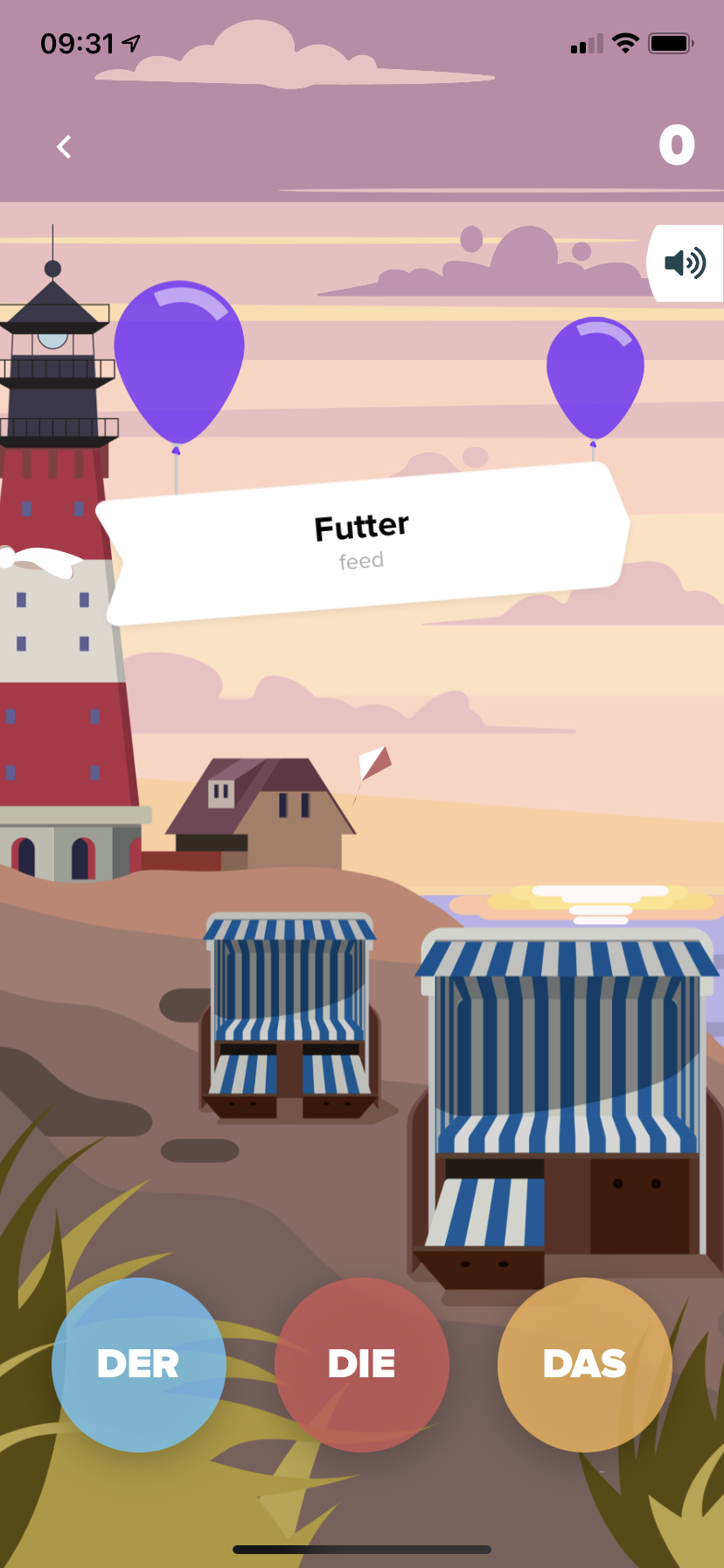
Language learning for adults
My husband and I tried loads of apps, including Duolingo, Rosetta Stone, and Busuu. If I’m completely honest, it did not prepare us as well as we had hoped for living in Germany. Nothing really compares to a proper language class, and if you’re looking to learn seriously to use it in daily life, work, or school, you will need to go beyond apps. I will say apps are helpful as a supplement to your class learning when it comes to things like flashcards and drilling specific elements that you can’t remember (*cough* German articles *cough*) – the screenshot above is from the app I use called Der Die Das.
There is an in-between world of podcasts, and upon reflection German Pod 101 was more helpful than the hours I spent on Duolingo. You want to find a podcast/audio lesson series that uses native speakers so you’re not learning wonky pronunciation that you will have to unlearn later.
When we arrived in Germany, we had a set number of private language lessons with Berlitz, and those were great. If you’re relocating through an employer, definitely negotiate language lessons as part of your package, for both you and your partner. However, it was too pricey to continue on our own. I looked around for German classes, but in our small town there wasn’t anything that didn’t require a commitment of full-day or half-day classes every weekday. I found Lingoda online, and they have been without a doubt the best way of learning a language when you want flexible classes but still need to properly learn. I wrote an in-depth review of my experience with Lingoda. Full disclosure: after writing that review, Lingoda contacted me to write blog posts for them about language learning, for which I get paid and a bonus of some free lessons, but I also still pay my monthly fee so I can do more. Take that how you will! There are other companies taking this approach now, and I think it’s a good one as we’re all more used to having conversations online. Look for small class sizes and native-speaking teachers.

Strategies that have worked for me
You really have to approach learning a language as a continual process, rather than something with an endpoint, as well as recognising there will be times you get more intense about it, and times you let it slide. It’s fine. I’ve learned that rounding out my language learning by approaching it from different angles has made it easier to keep at least some language learning going even when I haven’t booked a class in awhile.
- Make a playlist of songs in your target language, and learn the lyrics – SING ALONG – this has helped my pronunciation more than anything else (here is my ever-evolving German singalong playlist, for example)
- Find a good TV series or two in your target language – not dubbed, but written and filmed in your target language, that way you will get actual slang and what people really say, it’s fine if you pause it every 20 seconds to look something up, you will get it eventually
- If you’re not ready for that, start with films and TV you know in your language dubbed into your target language, and watch with the subtitles (not in English) – start with kids shows if adult stuff is too quick, but I find action films are pretty simple when it comes to dialogue
- Start following social accounts in your target language – language learning accounts if you like, but also just regular people you would normally follow – if that’s chefs or costumers, whatever, just find the relative hashtags in your target language
- Find comics or magazines, something with lots of visual cues, in your target language, again look for subjects you’re interested in anyway
In the end, learning a language takes effort, and you need to put the effort in yourself. No app, lesson plan or music playlist will magically make another language appear in your brain fully formed – no matter how much I wish I could zap that German adjective declension straight into my grey matter. I also want to say here that you can definitely do it, don’t let anyone tell you you’re not good at languages or some crap like that. It’s a skill, like slicing onions quickly or woodworking. You learn it, step by step. Some methods work well for some people and some don’t, so keep trying things until you find something, or a combination of things, that works for you.
Pin it for later!
